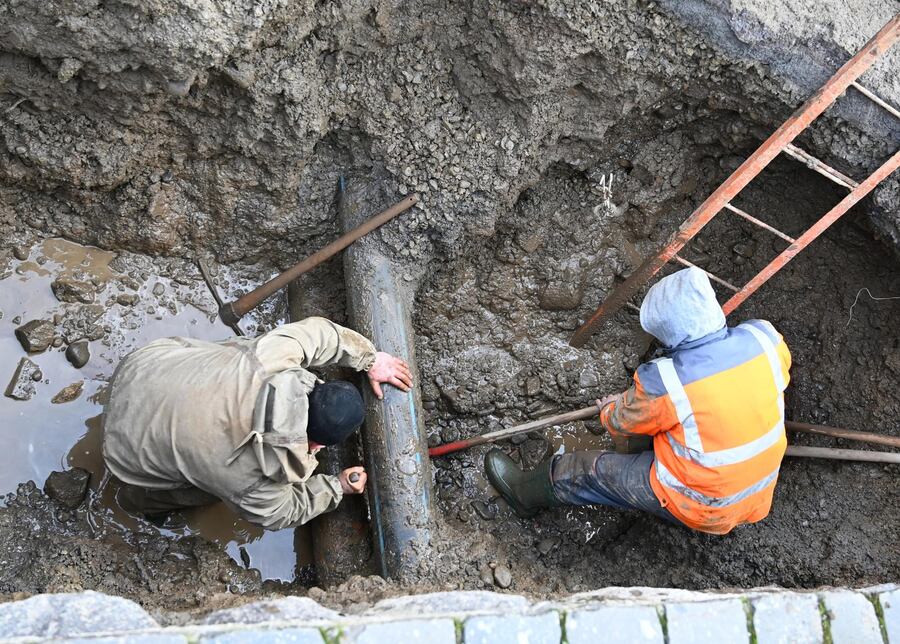Call This Monday to Get $50 Off
Schedule a Local Plumber in Morgantown Area - Call us Now to Get $35 OFF.
4.8 / 5 Ratings based on 794 reviews Great Plumbers, Great Reviews
Call This Monday to Get $50 Off
Schedule a Local Plumber in Morgantown Area - Call us Now to Get $35 OFF.

Basement drains are more prone to sewage backups than other parts of a house because they are located lower in the house than the sewer line. Sewage backup in the basement can be a real plumbing disaster if it goes unnoticed for too long. Basements are one of those spaces that may not be frequented daily, so a sewage backup might go unnoticed for a while.
In this article, you’ll learn the common causes of sewage backup in the basement and how to fix them. Knowing these causes can help you take preventive measures and keep this unsanitary problem at bay.
One of the most common causes of sewage backup into the basement is a clogged sewer line. Your sewer line can become clogged if you flush items that shouldn’t be flushed, such as wet wipes, feminine hygiene products, condoms, or even baby diapers. When a clog forms in the sewer line, it disrupts the normal flow of wastewater away from your house. This can lead to a buildup of sewage in the pipes, which can eventually force its way back up into your drains and toilets. If you’re experiencing backups in multiple fixtures throughout your house, including the basement, it is more likely a clog in the main sewer line rather than an isolated drain issue. Do not hesitate to call a professional plumber for sewer line repair.
Your septic tank only has a finite capacity, usually less than 1,500 gallons. If it’s not emptied in a timely manner, it will become full and the septic waste will have nowhere to go but to overflow and back up into your drains. Septic waste can also flow back into your drains if the outlet pipe in the septic tank is blocked. If it’s been years since your septic tank was emptied, call a nearby plumbing service to perform an inspection and give recommendations.
Sewer pipes are prone to damage, especially if they are older. Some of the common causes of sewer pipe damage include tree root intrusion, land shifts, and accidental damage resulting from renovation work. Broken or collapsed sewer lines can interfere with the proper flow of wastewater and cause sewage backup into basement drains. If your pipes have reached the end of their lifespan, it’s advisable to consider replacing them with modern and durable materials. Get in touch with a trusted plumbing service that offers trenchless sewer repair for an inspection. Replacing failing pipes will save you money in the long run.
Just like septic tanks, public sewer systems have a limited capacity. Heavy rainfall can overload the system and cause your basement drain to backup. Try to minimize water use to prevent further strain on the overloaded sewer system.
Are you dealing with sewage backup and looking for a plumbing repair service to fix the problem? Mr. Rooter Plumbing is here to help. We understand that sewage backup is an awful experience. Our knowledgeable and experienced plumbers are equipped with state-of-the-art tools to perform an inspection and identify the cause of the problem. If the cause is a sewer line clog, we will employ hydro-jetting to scour the pipes and remove virtually any blockage. We are the plumbing service you can count on for professional and cost-effective trenchless sewer repair.
Why You Should Have a Tankless Water Heater Hot water is one…
Read More+Common Water Heater Problems and How to Fix Them Water heaters are…
Read More+Water in Your Shower Not Hot Enough? Everyone deserves a nice hot…
Read More+